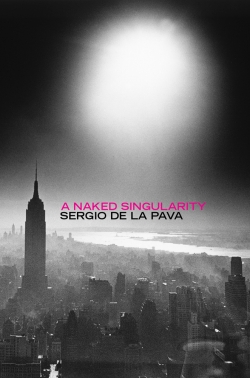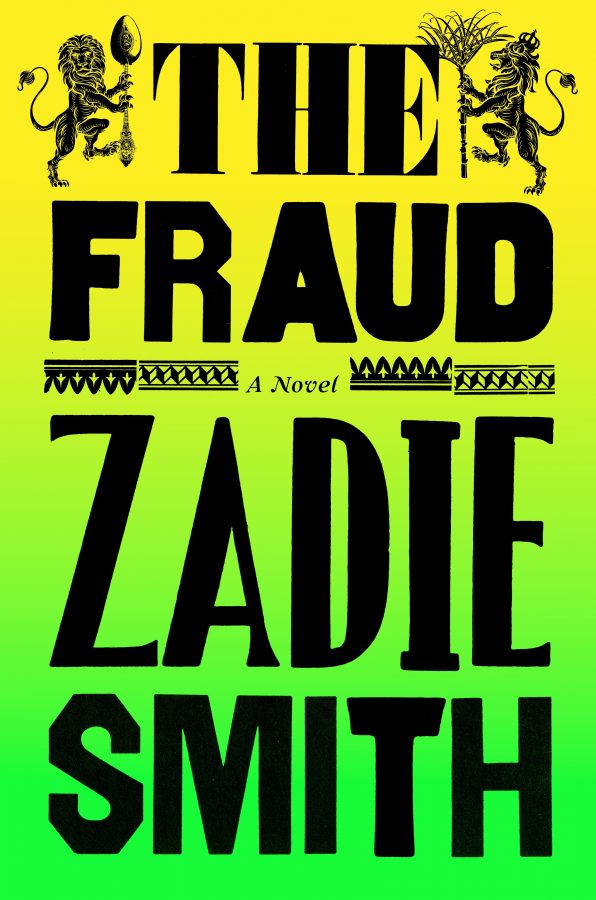Truth, Justice and the American Way: A Naked Singularity & Personae
In the second part of Roberto Bolaño’s 2666 (2004), one of his protagonists, the academic Amalfitano, recalls an encounter with a young pharmacist he would see constantly reading at the desk of his local drugstore. One evening, when Amalfitano enquired about the young man’s tastes, the pharmacist confessed to enjoying great authors, such as Kafka, Melville and Dickens, but only their shorter works: ‘He chose the Metamorphosis over The Trial, he chose Bartleby over Moby-Dick, he chose A Simple Heart over Bouvard and Pécuchet, and A Christmas Carol over A Tale of Two Cities or The Pickwick Papers.’
Amalfitano finds ‘a sad paradox’ in this recollection of a young reader who ‘clearly and inarguably preferred minor works to major ones’ and continues:
Now even bookish pharmacists are afraid to take on the great, imperfect, torrential works, books that blaze paths into the unknown … they have no interest in real combat, when the great masters struggle against that something, that something that terrifies us all, that something that cows us and spurs us on, amid blood and mortal wounds and stench and death.
This sentiment, expressed in a novel that is preoccupied with the nature of literature, storytelling and intertextuality, could be seen as Bolaño’s rebuke to those readers who might favour his shorter, more consistent and accessible novels, over his lengthy, maddening and unmistakably great final work. The dichotomy that it presents, however – between long, ambitious major novels and shorter, more formally perfect, but minor works – seems pertinent now, when there has been some ongoing discussion as to whether long-form literary fiction might be experiencing a resurgence. A recent piece in the New York Times about the two million dollar advance paid by Knopf to Gareth Risk Hallberg for his 900-page debut novel City on Fire argues that the intense competition among publishers for the rights to this work indicates that long novels are once again becoming popular with the reading public.
A response by Laura Miller in Salon suggests that this claim is remarkable nonsense. Long novels cannot be experiencing a comeback, Miller rightly asserts, because they have never gone away. She discusses the abiding appeal of the long works of nineteenth century authors, such as Dickens, Thackeray and George Eliot, as well as the excellent and weighty popular fiction that remains in vogue: J.K. Rowling’s Harry Potter series, Stephen King’s regularly published doorstoppers, the novels of George R. R. Martin. Long novels have remained popular despite the supposed distractions of digital media because, according to Miller, they offer readers a sense of immersion and escapism, the ‘simple gluttony’ of narrative, which shorter forms cannot match, ‘despite their felicities’.
Unfortunately, Miller goes on to frame the supposed divide between long and short fiction as a conflict between populism and elitism: ‘The pleasure readers find in this experience [of reading long immersive fiction] is often disdained by literary critics because it tends to hijack your ability to regard and evaluate the book as a work of art.’ Furthermore, she implies that professional book reviewers, as ‘the serfs of assigned reading’, may have a vested interest in adulating shorter fictional forms over longer ones: it cuts down their workloads. What crafty devils. Nonetheless, Miller’s position is interesting when one considers how many discussions of hefty recent successes, such as Eleanor Catton’s The Luminaries (2013) and Donna Tartt’s The Goldfinch (2013), remark upon their length with a measure of surprise. Long novels have always been published and read across a range of genres. Why are we so shocked at their success now? Or so insufferably self-congratulatory about having enjoyed them?
Both Miller and Bolaño implicitly characterise shorter works as being more formally perfect in terms of language and structure, yet ultimately inferior to long-form fiction. For Miller, this is because long novels offer a narrative pleasure and comfort that draws readers in; for Bolaño, they offer a challenge and a struggle that may push some readers away. While it can be argued that they may be looking for different qualities in long-form fiction – Miller is preoccupied with nineteenth century realist novels and their twentieth and twenty-first century successors, whereas Bolaño seems to cast the net a little wider – both of these arguments would seem to have an element of truth. We do find escapist pleasure and comfort in extended narratives, but at the same time their scope and ambition may exhaust us.
These ways of drawing distinctions between long and short forms of fiction are worth keeping in mind when considering the two recently republished novels by Sergio De La Pava. The first, A Naked Singularity, at over 800 pages, fits the familiar mould of ‘great, imperfect, torrential works’ almost too well. The second, Personae, at barely 200 pages, makes for a striking contrast, not only in terms of its length, but also with regard to the style and structure of its narrative. De La Pava presents us with two remarkable and remarkably different works.
*
It should be noted that De La Pava’s trajectory as a writer is quite remarkable as well. A public defender in New York City, he spent six years writing A Naked Singularity only to have it rejected by the ninety or so literary agents he approached. So he published it himself on Xlibris (a print on demand service) and, thanks to the efforts of his wife, who acted as his publicist, it began to attract both a readership and some thoughtful, positive reviews from the Wall Street Journal, The Millions and, most importantly, the Quarterly Conversation. Scott Bryan Wilson’s enthusiastic endorsement of the novel in that online publication attracted the attention of the University of Chicago Press, which then republished A Naked Singularity and De La Pava’s second novel Personae.
This process has been a credit to all concerned (apart from the ninety or so literary agents): De La Pava for not being deterred by early rejection and choosing to self-publish; Susanna De La Pava for her efforts in promoting his work; his early readers and reviewers for championing his work; and the University of Chicago Press for its decision to republish these two challenging novels by an author who is now being recognised as one of the twenty-first century’s most interesting new American voices. Furthermore, the snowballing success of A Naked Singularity, eight years after its initial, unheralded publication, could be seen as part of the supposed ‘resurgence’ of long-form fiction. The strength and complexity of its narrative satisfies both Bolaño’s demand for ambition and Miller’s need for deep and prolonged immersion.
A Naked Singularity is narrated by a young, preternaturally talented public defender in New York named Casi, who, like the author, was born in New Jersey to Columbian immigrant parents. Since earning his licence, Casi has never lost a trial. He works punishing hours on behalf of a staggering array of clients who have become ensnared in the criminal justice system, while also doing pro bono work on the case of Jalen Kingg, a mentally disabled man on death row in Alabama. Casi, while realistically beaten and bedraggled by his impossible workload (and his equally impossible student debt and Brooklyn rent) is something of superhero, both in his abilities and his commitment to justice. He even swears a superheroic oath that ‘nothing detrimental or untoward would ever happen to a client of mine’. The novel chronicles his flailing, increasingly desperate efforts to remain true to that oath, interspersed with ruminations about the legal system, ethics, morality, boxing, God and other subjects, while occasionally shifting focus to Casi’s downstairs neighbours, three student slackers who are performing increasingly bizarre psychological experiments involving (the worshipfully capitalised) Television. Casi gradually falls under the malign influence of his colleague Dane, who is as obsessed with perfection as Casi is with justice and who, having failed to execute a perfect legal defence, is now drawn to the idea of planning a perfect crime.
The novel is a wild, original and exhilarating ride, from its first chapter, which throws the reader straight into the chaotic and overcrowded New York City criminal courts, through its many developments, details and case histories, to its strikingly beautiful final pages. It is also imperfect, of course, in the way that Bolaño characterises great extended works. Some of its subplots may test a reader’s patience, though the novel is more tightly constructed than first appears and many of its seemingly untethered digressions work to advance the plot or reinforce its central themes.
Its finest sections are those that deal directly with the criminal justice system: its complexities, eccentricities and, above all else, its language. Much of the early part of the novel is dialogue. Casi interviews his sorry parade of clients, strategises with his colleagues, and engages in heated confrontations with prosecutors and judges. De La Pava handles these dialogues masterfully, depicting the ebb and flow of legal debate, its arbitrary and reductive categories, its narrow interpretations. Casi’s clients are caught in a whirlpool of impersonal jargon and formulated phrases. Talk defines A Naked Singularity: the endless buzz and hum of conversation, sometimes empty, sometimes profound, sometimes slipping seamlessly back and forth between the two. New York is a city where everyone speaks – eloquently, awkwardly, glibly, cruelly, foolishly, emotively, seductively – but almost no one seems to listen. In the novel’s most powerful section, Casi argues himself hoarse against a judge who simply refuses to hear him, who dispassionately makes denial after denial, allowing Casi’s reasoned defence no grip or purchase. In another scene, he is stricken with earache and staggers through the streets, searching for silence, for a brief respite from all these words.
*
The reviews of A Naked Singularity have compared it to a host of other long novels. Many agree that it is firmly in the tradition of those baggy works of late twentieth century postmodern masters, such as William Gaddis, David Foster Wallace, Thomas Pynchon and Don DeLillo. This grouping makes obvious sense, not just because of the novel’s stylistic playfulness and its frequent leaps between a range of cultural references and esoteric subject matter, but also because, as Ryan Ruby points out in Dissent, A Naked Singularity is a Systems novel, ‘which moves its characters through the machinery of the institutions that structure and regulate contemporary life as a means of critically investigating their effects on individuals’. In this sense, De La Pava’s critique of the criminal justice system could be seen as akin to David Foster Wallace’s use of the institutional culture of the IRS in The Pale King (2011), or the wry investigation of the meta-narratives of consumerism, science and religion found in a novel like Don DeLillo’s White Noise (1985).
Great authors of the nineteenth century have been frequently invoked as well, particularly Dickens, Melville and Dostoevsky. This grouping has equal merit. The narrative of A Naked Singularity certainly has the gripping, heady pull of a novel like Crime and Punishment, and the unflinching earnestness with which it explores its central themes is also reminiscent of nineteenth century literature. De La Pava is as passionate as Dostoevsky when it comes to discussions of religion and morality, which are approached without the distance or protection of irony. The outrage expressed in his descriptions of the criminal court system is reminiscent of Émile Zola.
There is, however, a third point of comparison that often crops up in reviews, one that is worth dwelling on. This is to the revered HBO television series The Wire. According to Robert Collins in the Sunday Times, A Naked Singularity is ‘The Wire written by Voltaire’. Prominent reviews in the Quarterly Conversation, the Wall Street Journal and other publications have also mentioned the show.
It should be noted that references to The Wire specifically, and to television programs in general, are becoming increasingly common in both the reviews and publicity materials for newly published literary fiction (the forthcoming City on Fire, mentioned earlier, has already elicited at least one comparison to The Wire). And it could be argued that the long narrative arcs of contemporary television dramas may be contributing to the supposed resurgence of long novels – the assumption being, presumably, that if audiences have the time and patience to work their way through five or six seasons of a television series, then perhaps the occasional 700 or 800 page novel might not be beyond the bounds of possibility as an entertainment option. Publishers are now talking about finding ways to encourage ‘binge-reading’ of long novels and fiction series, similar to the ‘binge-viewing’ that television audiences frequently indulge in via streaming, downloads and DVDs.
I am not certain if this optimism is entirely justified. I remember a publisher telling me a few years ago that the rise of tablets, smart phones and web-browsing would result in the revival of short stories as the perfect literary form for an age of constant electronic distraction and, well, I’m still waiting on that. But it is indisputable that television, in both its form and delivery, has encroached upon one of the key pleasures that used to distinguish the novel from other narrative art forms: that it offers readers an extended narrative that they can enjoy at their own pace. This focus on storytelling and character development has expanded beyond the marquee dramatic series produced by the likes of HBO and AMC and into the realm of procedurals and sitcoms. In the words of Dean Pelton from NBC’s Community: ‘T.V. has been crazy good lately’.
With so many new novels being compared to television shows, it is worth noting that back in the mid-2000s when A Naked Singularity was approaching its first, largely unacknowledged publication, The Wire, as one of the first shows in this new wave of television, was being frequently compared to a novel in its scope and form. Its creator, David Simon, referred to the show as a ‘televisual novel’ in interviews, noting the similarity of its exploration of the city of Baltimore to Balzac’s multi-layered depiction of Paris in The Human Comedy. This was picked up by The Wire’s champions, leading to a host of claims that the series was ‘like a novel’ or ‘novelistic’, and what must still be the greatest overuse of the term ‘Dickensian’ in television criticism to date. The comparison to a novel no doubt served to distance the show from some of the stigma still attached to television, which has often been regarded as low-brow, formulaic and repetitive in its pleasures, perhaps only a notch above video games, as narrative forms go.
This view of television as a cultural wasteland, as empty bread and circuses, is the focus of one of the weaker subplots in A Naked Singularity. While entertaining, this subplot offers a dated and simplistic critique that sits uneasily with the sophistication of the novel’s other strands. Casi’s downstairs neighbours – Alyona, Louis and Angus – exist in a state of media-saturated isolation, wasting their considerable intelligence on an obsession with Television, while Casi expends and exhausts himself in the world outside. They serve as a hip, detached counterpoint to Casi’s moral passion and Dane’s Mephistophelian wickedness. Rather than try to effect actual good or evil, they are content to sit on the sidelines, endlessly analysing and experimenting with popular culture (typical hijinks include trying to demonstrate that Ralph Kramden from The Honeymooners can be brought to ‘life’ through repeated viewings of episodes, or electronically torturing a rat while watching the ‘purest’ channel on Television, ADTV, which shows only advertisements).
Ryan Ruby defends this narrative thread as ‘part of De La Pava’s overall moral vision’, arguing that ‘Television encourages the very ironic detachment that makes genuine engagement with our degraded moral landscape more difficult’. This is a reasonable argument, but it is your grandfather’s television that is under attack here: repetitive, formulaic sitcoms and empty consumer culture conveyed through endless advertisements.
What if De La Pava had turned his satiric focus on our current obsession with long-running dramatic series with sophisticated narratives and characters who undergo genuine change and development – series that comment on moral, political and social themes in ways that are as intelligent and insightful as any novel? My partner frequently mocks me whenever I am visibly moved by television narratives (most recently it was Troy’s departure in the fifth season of Community), contrasting my generally dispassionate responses to the human horrors that enter my newsfeed each morning with my heartfelt investment in the lives of made-up people. But if we leave behind the false hierarchy of forms, then are we not forced to accept that all such engagement amounts to detachment, whether it is ironic or not? That the quantity of time we spend immersed in any imagined world, of whatever quality, at the expense the real is going to be problematic, or even reprehensible? Perhaps. Poets may leave the Republic at any of the designated embarkation points.
*
De La Pava finished writing A Naked Singularity in 2007, just as The Wire was completing its run and the new wave of ‘televisual novels’ was starting to appear. But even the old formula of repetitive, distracting Television that De La Pava critiques is worth thinking about in more detail. The Wire has been compared to a novel because of its slower than usual pacing, the depth of its characterisation and its social commentary. Yet its overall narrative structure is not at all novelistic and this is its abiding strength as a dramatic series. Indeed, rather than developing a singular, constantly unfolding, novel-like narrative (like the more recent shows in this current Golden Age of television drama), The Wire adapts the repetitiveness that characterises the more conventional Television that De La Pava derides. Each season of the show presents us with the same essential problem: drug dealers want to deal drugs and the police force wants to stop them. Every successive season adds layers of social, economic and political complexity to the conflict, but this basic narrative scenario is always repeated. The show never reaches a point where a great change of any kind is effected, nor does it ever focus on one character to such an extent that their development, remarkable though it may be, could be said to comprise its central narrative.
As Jason Mittell argues in Electronic Book Review, the structure of The Wire is ludic rather than novelistic, in that each of its seasons could be seen to resemble a video game level more than a chapter from a novel: the objective or problem remains the same, but the gameplay becomes more sophisticated, taking place in an environment that has become more complex and treacherous, and involving a wider array of skills and considerations, which either build upon or deliberately subvert the lessons learned in earlier levels. Although the creators of the series turned to the novel for artistic legitimation, the idea that the characters are part of a ‘game’ is the most heavily laden metaphor in The Wire, to the extent that the series finale involves each of the central characters being replaced by a new ‘player’ who assumes their role. This mirrors the paradoxical conclusion of the old video arcade, where the only reward for playing a game to the end is a ‘free game’, the right to play again.
In this sense, The Wire arguably used the formulaic nature of conventional television to comment on the institutions that it is investigating. In a typical police procedural, the detectives always investigate a crime and apprehend a criminal, hour by hour, week after week. The Wire does not deviate from this repetitive narrative, but it slows it down and contextualises it. It shows us the surrounding economic, political and social systems that ensure the same scenarios recur again and again, and why it makes no difference at any larger level.
While A Naked Singularity does not share The Wire’s narrative structure, both works are concerned with how the mechanisms and language of large systems work to preserve and perpetuate themselves while victimising individuals. The comparison between the two works, however, reveals a shortcoming in The Wire’s approach: a rare moment where it embraces one of the clichés of the old formulaic Television, rather than presenting a deeper and more nuanced perspective. The only significant defence lawyer depicted in The Wire, Maurice Levy, is also one of the few characters who is never allowed a moment of complexity, or indeed a single redeeming quality. The cynical, self-serving defence attorney, who is often contrasted with a nobler and more principled prosecutor, is a common trope (even Jeff Winger in Community must leave behind his morally dubious past as a criminal defence lawyer before he can learn about friendship and the importance of helping others). Of course, there are heroic exceptions, such as Atticus Finch in To Kill a Mockingbird (1960). But these only emerge in scenarios where the client is innocent.
As Casi journeys around New York in A Naked Singularity, he is constantly asked some variant of the question: How can you live with yourself for defending criminals? This reinforces the fact that the right to a legal defence is usually portrayed as an unambiguous good only when the defendant has been wrongfully accused. A Naked Singularity makes clear, however, that it is important and necessary for someone to speak on behalf of the guilty. To the novel’s great credit, none of the clients in Casi’s long roster are clearly innocent. Most, if not all of them, are probably guilty as charged. What the reader comes to see in almost every case is the disproportionate impact the court system has on the lives of those caught up in it, even for the most minor infractions. From the conversations between Casi and his clients, his colleagues, the police and the judges, we learn that charges quickly pile upon charges and these are followed by requirements, restrictions, arbitrary impositions and obstructions. Those who lack the resources or the language skills to meet or resist these bureaucratic constraints will soon come to violate them as a matter of course. Every aspect of the system is stacked against Casi’s clients and the only reason he has proved successful in the court room is that the prosecutors of New York City are unused to resistance, having become accustomed to playing the game on its lowest difficulty setting. The sheer volume of cases makes mounting an adequate defence all but impossible for many of Casi’s colleagues. They are all too ready to prod their clients towards the easiest plea bargain available. One of them even has a panic attack when it looks like a case might actually go to trial.
Furthermore, the judges in A Naked Singularity are anything but objective and impartial. Their biases toward the prosecution are easy to see. It is the obstinate and relentlessly punitive mindset of one of these judges that eventually breaks Casi’s perfect defence record, along with the last vestiges of his belief that he can make a genuine difference by working harder and being smarter than his opposition. This defeat is paralleled in a later section concerning Casi’s obsession with the career of the boxer Wilfred Benitez, whose perfect record was also destroyed by an opponent who simply played the game in a way that rendered all of his carefully cultivated skills irrelevant.
In this sense, the criminal justice system itself proves to be the ‘naked singularity’ of the title. It not only sucks in the novel’s characters, but seemingly unrelated narrative threads. The long philosophical conversations about causality and knowledge prove to be essential rather than mere digressions when we see these theories played out in the courtroom. Many of the legal arguments revolve around establishing the chain of events that supposedly resulted in a crime and what the defendant knows or can be said to have known. Knowledge of the drug deal taking place behind her may transform a bystander into a lookout in the eyes of the court. Knowledge of the commercial lettering on the side of a van will determine whether a break-in is considered be an act of petty theft or more significant larceny.
‘A lawyer is in essence a writer,’ De La Pava is said to have told the students in a trial course that he once taught. This statement may be taken as a comment on more than just the practical writing tasks of the profession. A criminal trial is a competition between two possible stories and, in making their cases, lawyers needs to build narratives that are as compelling, coherent and believable as any novelist’s. But the stakes are always higher when the story is told for the defence, and the audience is always harder to please.
*
As Personae’s blurb points out, De La Pava’s second novel is nothing like his first. While A Naked Singularity offers the reader all the conventional pleasures of a long novel — a compelling narrative, a defined protagonist, and a clear, consistent theme that stimulates both thought and emotion — the much shorter Personae is a collage of different texts. This has led some reviewers and critics to question whether it can be properly called a novel at all.
It begins with a report from Dr Helen Tame, a former concert pianist and musicologist turned police detective, who is investigating the suspicious death of a 111-year-old Columbian man named Antonio Acre. But what seems like the set-up for a conventional murder mystery ends abruptly after ten pages. The rest of the novel resembles a scrapbook of clippings, curios and written fragments. These include extracts from an article on Johann Sebastian Bach written by a young Helen Tame, two obituaries, a novella (presumably by Acre, though this is not confirmed), another section about Helen Tame written in the third person, and a selection of Acre’s writings, found at the scene of his murder, consisting of some line revisions of an English translation of Gabriel Garcia Marquez’s One Hundred Years of Solitude (1967), a short story written in margins of an old television guide, and a play (an absurdist Beckettian drama, which is the highlight of the novel).
Rather than a conventional narrative or plot, then, we are given an assembly of material evidence and it becomes the reader’s mission to act as the detective, searching for connections between these seemingly disparate texts.
While this is a radical departure from A Naked Singularity, there are some links that can be drawn between the two works. Like Casi, Helen Tame is outlandishly skilled in her chosen profession. Just as Casi has never lost a trial, Tame has apparently never left a case unsolved. Her talents for observation and deduction are aptly described as ‘otherworldly’. At one point, she is referred to as ‘natural police’ (this may be a play on The Wire’s frequent use of that term), when in truth she is anything but. In this sense, both Casi and Tame recall old formulaic Television, wherein the guardians of the justice system are frequently depicted as persons of exceptional ability and integrity. But both of De La Pava’s novels subvert this comforting yet naive fantasy. Casi’s eventual defeat shows that his skill as a trial lawyer, no matter how remarkable, ultimately offers little that can counter the inequities of the system within which he operates; Tame is killed off unceremoniously partway through Personae, without having taken any real steps to solve the mystery of Acre’s murder.
Tame’s failure does not matter much within the schema of the novel. As J.W. McCormack points out in an insightful review in Book Forum, Tame is a detective who differs from the conventional mould in that she is obsessed with ‘Truth in its multifarious instantiations’ rather than being driven by the need for justice. Justice implies a singular narrative, an objective judgement of guilt or innocence, good or evil. ‘Truth in its multifarious instantiations’ implies an awareness of the subjectivity of that term, an awareness that it shifts and changes depending on one’s perspective, an awareness that it possesses many facets and manifests itself in a variety of forms. This understanding of truth precludes the kind of clear resolution that a conventional detective story would offer. And so Helen Tame operates not as an investigator who draws clear distinctions between the real and the false, but rather as an ideal reader, one who can appreciate the different manifestations of truth within Acre’s incomplete and contradictory writings.
This distinction probably best articulates the difference between these two equally remarkable and exhausting novels. A Naked Singularity is a novel about justice. This determines its form. It offers its readers a large, seemingly digressive yet ultimately singular narrative, in which all of its various threads are eventually drawn together to reinforce its central theme and deliver its ultimate conclusion. Personae, on the other hand, is a novel about truth. It is therefore fragmentary, elliptical and inconclusive. No character, story or perspective can be said to be central to the novel, but all offer glimpses of a particular truth, fascinatingly and frustratingly incomplete.
It is perhaps no surprise that justice delivers a more satisfying, complete and accessible narrative than truth. Of the two works, A Naked Singularity more closely fulfils our expectations of what a significant or even great novel should be like. Personae, by contrast, offers something unfamiliar. Its rewards are less clear. It seems destined for a cult readership as the slim, experimental supplement to the author’s major work.
In the final part of Bolaño’s 2666, the subject of major and minor novels is raised again, when the writer Archimboldi attempts to rent a typewriter from an old man in Cologne. Literature, the old man suggests, is often likened to a forest, wherein the minor works comprise its ordinary features and the major ones are ‘the lakes, the towering trees’. In this metaphor, minor works allow access and pathways through which we can appreciate the landscape’s great, enduring features. But the old man no longer believes this and instead posits that the sole function of minor literature is to smother and conceal the great works. ‘There must be many books, many lovely pines, to shield from hungry eyes the book that really matters, the wretched cave of our misfortune, the magic flower of winter!’ The old man confesses that he used to be a writer himself, but gave it up because he could no longer bear to write works that simply served to conceal the true masterpieces.
This seems to restate Bolaño’s earlier point: that the books which might be categorised as a writer’s minor works simply offer distraction and diversion from their major efforts. But the obvious beauty of towering trees and majestic lakes can also draw our eye from features that demand closer and more careful scrutiny, the ones that may escape us if we do not take the time to look for them. A Naked Singularity seems destined to eclipse Personae for the same reasons that it has received the lion’s share of consideration in this review: its qualities are more familiar, appreciable and easier to define and discuss. It exhausts us in ways we are accustomed to and are certain to benefit from. Personae demands a different kind of reading. It won’t be for everyone. I am not sure if it was for me. But its ambition is unmistakable and readers who have the need and the stamina for this kind of exhaustion will ensure that it is not completely overshadowed.
References
Julie Bosman, ‘City on Fire, a debut novel, fetches nearly $2 million,’ New York Times, (10 November 2013).
Kelly Faircloth, ‘Publishers Now Want You To “Binge Read,”’ Jezebel (11 February 2014).
J.W. McCormack, ‘Personae by Sergio De La Pava,’ Book Forum (1 November 2013).
Laura Miller, ‘Why we love loooong novels,’ Salon (14 November 2013).
Jason Mittell, ‘All in the Game: The Wire, Serial Storytelling, and Procedural Logic,’ Electronic Book Review (18 November 2011).
Ryan Ruby, ‘Of Loopholes and Black Holes,’ Dissent: a Quarterly of Politics and Culture (Summer 2013).
Lauren Sandler, ‘Reasons to love New York No.27: Because this Public Defender is Also a PEN Award-Winning Novelist,’ New York (15 December 2013).
Scott Bryan Wilson, ‘A Naked Singularity by Sergio De La Pava,’ The Quarterly Conversation (4 October 2010).
‘The Wire: arguably the greatest television programme ever made,’ The Telegraph (2 April 2014).







